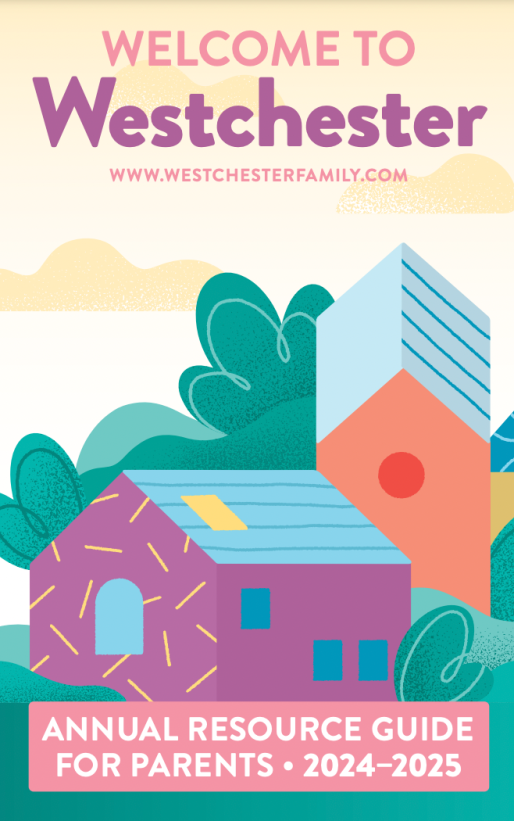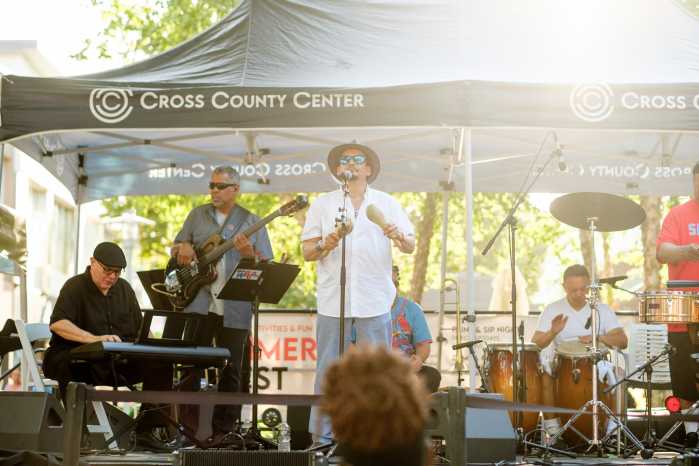The transition to motherhood is a story as old as time, yet it’s retold with each individual experience of becoming a mother. In honor of Mother’s Day, let’s acknowledge that this seemingly ordinary transformation is in fact extraordinary. There is no doubt that a mother has enormous impact on her children. Yet, it’s also intriguing to examine how children can shape a mother’s personal growth and development.
The Shift
New, and not-so-new, mothers describe an often seismic shift in their identities, priorities and worldviews. It begins with an initial revolution that evolves with time and the developmental needs of their children. These changes can be simultaneously distressing and welcome, sources of both inspiration and depletion. As a researcher and practitioner I am endlessly curious about how mothers make meaning of this enormous personal undertaking. What happens internally and externally as motherhood takes hold as a central, or perhaps more central, preoccupation in their lives?
In trying to make sense of their experiences, mothers may be grappling with the same questions that send seekers to the tops of mountains, church pews, or meditation cushions. One recurring finding in my work shows that raising vulnerable others (animals and aging parents included) unwittingly teaches us about the core tenets of the world wisdom traditions like mindfulness, compassion, patience, ego death and paradox. These are not just benign philosophical ideals. When engaged they have demonstrated, through a growing body of evidence, to confer physical health and psychological well-being. Sometimes these revelations arrive after a crisis, such as an illness or loss, has upended the usual order of things. Becoming a mother, or matrescence as coined by anthropologist Dana Raphael (1975), can also be viewed as another kind of life-drama, with its own disorientation and opportunity for resilience. Like adolescence and other rites of passages, giving birth or defying death (sometimes one and the same), reveal that our own adult development is as interesting as that of our children! We too can use a helping hand and a village to nurture us through.
Katie, a recent transplant to Westchester (Hastings-on-Hudson) from the West Coast, is nostalgic for when, “We used to live in communities with multi-generational families all living nearby or in the same home. While that has its obvious downsides, what a tremendous sense of support we would have as mothers! And when you move you disrupt what you do have. So in my own way, I’ve tried to make those ‘families’ with my neighbors. They see my kids almost every day, I feed theirs, they feed mine. I’m hoping over time we grow our web and keep paying it forward.”
Challenging Cultural Expectations
While parents face challenges that are unique to their individual circumstances, they have collective insights that cut across these differences. One of the common challenges I hear from parents is that the demands of parenting essentially run counter to the modern world and its competing set of cultural expectations: being versus doing, relating versus producing, listening versus performing, comfort with ambiguity versus certainty, presence versus distraction and interdependence versus self-reliance. While one could argue that these are universal human struggles, it could also be said that the introduction of children has an especially amplifying effect.
Many mothers can relate to that painful split when they try to be present while attending to their children. They report a constant divided attention between their to-dos and wanting to spend quality time knowing that this moment is precious and fleeting. Aileen, a former banker from Pelham admitted that, “It was absolutely a losing battle – there wasn’t enough of me to go around between excelling at work and not being stressed for my young children. As someone used to being a high achiever, the dissonance of often knowing exactly what needs to get done, but being physically unable to do it all was extremely frustrating trying to manage my different responsibilities.”
Maria, a college instructor from Hastings-on-Hudson, spoke to the additional loss of “me-time” and one repeating scenario on her way to renewed self-focus, “It really does feel like my son knows exactly when I’m trying to get back to my old routines. The other day I finally had it in me to get dressed up in something more than leggings and a dirty shirt. The minute the lipstick touched my lips he woke up from his nap and started crying as if on cue. It happens all the time in big and small ways.”
Like a good family sitcom, parents bemoan getting ready to leave the house for an important appointment, only to find their young children have undressed themselves or their older ones had never gotten dressed to begin with. Even parents devoted to selfless contribution at work, like Scott Harrison, the founder of charity: water, must find comic relief at home: “One of my recurring discouraging moments as a parent: cooking breakfast, looking out with delight to see empty plates, and then next in horror to the floor.”
Self Compassion
On the surface, these absurd encounters can propel deeper existential questions and even dark conclusions like those posed by Albert Camus in The Myth of Sisyphus repeatedly pushing his stone up the hill only to roll down again. Understandably so, parents aren’t always sure if these daily lessons are teaching them humility or humiliation and whether they are, frankly, pointless. Most parents can relate to feeling as if parenthood is punishing when their patience is tested while seeking a moment to themselves or initiating a project only to be thwarted again and again.
“As a professional, I hear my patients describing judgments of themselves and disappointments that I too experience as a parent: the drive to please and succeed in all my roles while also feeling that I am letting everyone down. Yet I’ve learned to become more patient and compassionate with myself. Just like my toddler, I am also learning to walk,” says Greg Payton, psychologist and father of two. “Because of my children, I’ve discovered healthier habits, such as setting boundaries, resisting unimportant distractions and prioritizing the emotional wellness of our family.”
This growing awareness of self-compassion can extend toward other parents through empathic action. Katie again voiced how this has become so automatic to the point that she did not even see it as remarkable, “Oh that happens all the time! At least a few times a month. There have been so many times when I’m out in public and help strangers. Simple things like a mother who needs to go to the bathroom. I’ll offer to wait with her kids so they don’t run off. You make the eye contact and say ‘go, I got this.’”
Self-Actualization
Mothers I consult with describe as many awe-inducing examples of appreciation for the beneficial ways their children allow them to slow down, notice surroundings and revel in small instances of beauty otherwise missed. Seeing the world from a child’s eyes can have its considerable rewards, including the lasting power of kindness, the pain of misguided aggression, or an insistence to tune back in when tuned out. Children awaken us to bigger truths like the necessity of tolerance for co-existence and the possibility of unconditional love and forgiveness. To paraphrase a client, “My child is a gift to start over, each and every moment.” Such words empower children with the same potential to illuminate our greatest values as any contemplative or spiritual practice. If we can turn a raisin into a moment for reflection à la Jon Kabat Zinn’s famous mindfulness exercise, can we honor motherhood as a vehicle for self-realization and social justice?
Aileen from Pelham agrees. “My children may have changed me from who I thought I was, but I am beyond grateful to say that they are the fire behind my self-actualization. I used to care too much about people’s opinions to make bold decisions. Now I have to put it in the forefront. What kind of example am I setting?” Aileen knew her children were going to pay more attention to what she did rather than what she would say to them, so she makes her actions count. She’s constantly asking herself questions, did I just say I cared about the environment, or did I use only reusable containers in our daily life, recycle as much as humanly possible and live a life of conscious consumption? Did I just say I cared about other people, or did I show up and march for equal rights and take an active role in our local government, donate items to neighbors in need, cook for those less fortunate? “They were watching, and I wanted them to be proud of what they saw, as well as incorporate those habits into their life,” she says.
Mother’s Day can be both a celebration and opportunity to recognize the potential for endless change and discovery in the nature of mothering. Doing so might not come easily at first, like a less-honed muscle that with continued practice becomes a strength. Motherhood might be more akin to a lifetime gym membership, pushing our limits of what it means be human and humane. Mothers are modeling this expanded attitude for the rest of us and revealing stretch marks that are more than just skin deep. As one mother, in a study by myself and a colleague, poignantly professed, “The greatest stress, the greatest stretch … the experience that pushes me to be all that I can be and more than I ever knew I could become” (Athan & Miller, 2013).
Aurélie Athan, Ph.D. is a Clinical Psychologist in private practice and faculty at the Spirituality Mind Body Institute at Teachers College, Columbia University. She specializes in reproductive health and family wellness, and the psychology of creativity, myth and archetypes. matre
Resources
•Eileen Fisher Life Work – Workshops for women’s development and other existential approaches. Irvington. eilee
•Heart to Hand Healing Center – Acupuncture, and coaching. Tarrytown. heart
• Hudson River Sangha – Mindfulness group held weekly. Tarrytown. sites.googl
• Sacred Spirit Yoga and Healing Arts Center – Yoga, holistic health and healing. Dobbs Ferry. sacre
• Wainwright House, Inc. – Workshops on parenting among other mind-body practices. Rye. wainw











